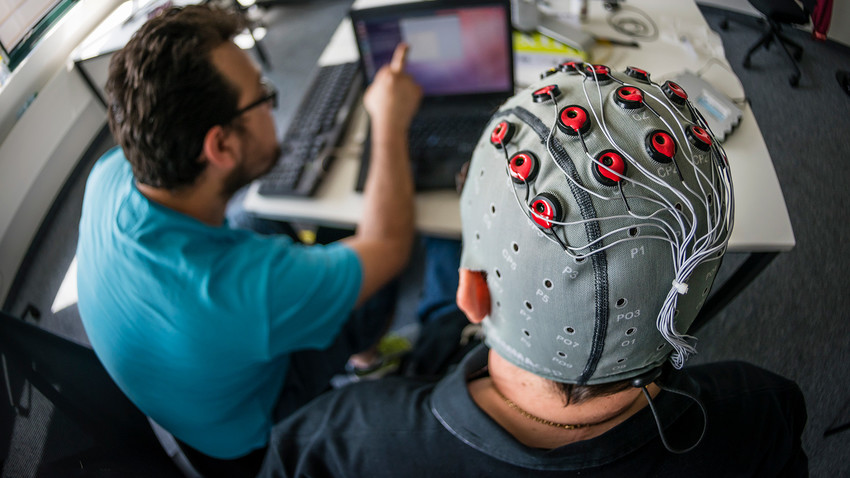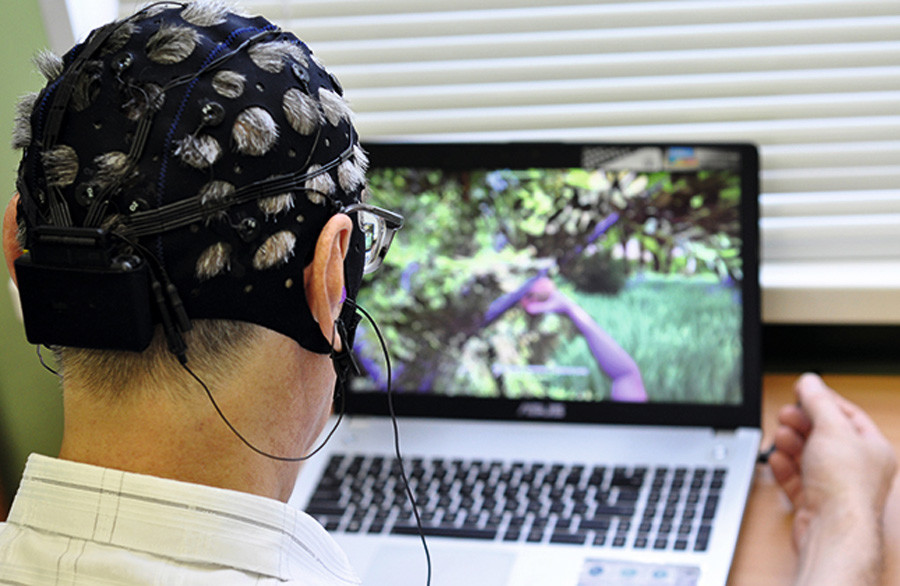Imagination booster: New device facilitating stroke recovery

Usually the stroke affects the part of the brain which is responsible for motor functions of either left-hand or right-hand side of a body. The new play structure, developed by the Russian scientists, helps other areas of the brain to perform functions of the damaged ones.
“The human brain is very flexible and capable of recovery bypassing the affected areas,” said Lev Stankevich, one of the developers and Associate Professor at the St. Petersburg based Polytechnic University (SPbPU).
The structure consists of an electroencephalograph, a wireless EEG amplifier and software: a patient can use a laptop, a tablet or a smartphone and do exercises at home. Rehabilitation takes about 2 months.
Prior to starting the exercises, a neurologist and a neurophysiologist conduct a research revealing the state of the patient's brain activity and gather data about the brain activity.
The patient should imagine moving his hand or other part of the body, and then try doing this in a reality. At this moment scientists record surface activity of the brain using an electroencephalograph. Machine learning methods allow to improve the rehabilitation.

According to another developer of the structure, Philipp Gundelakh, gamification is the main advantage of a structure.For example, a patent can play a game, where the main character walks in the garden and picks fruit.
“The more correct are his impressions of actual movements, the more fruit the character can pick, and the more effective the motional rehabilitation will be,” said Gundelakh.
The patient is 'lured' into the game, and can see the real impact of his thoughts.
Currently, another game is being developed at SPbPU, where the character will shoot at targets. It is planned to increase the number of games, and patients will be able to choose interesting ones.
Clinical trials of the device will start in July in the Saint Petersburg based hospital.
SPbPU scientists worked on the play structure in cooperation with iBrain, the innovation company focused on new solutions for treating movement disorders. Their research is a part of the Project 5-100, a program supporting major Russian universities.
If using any of Russia Beyond's content, partly or in full, always provide an active hyperlink to the original material.
Subscribe
to our newsletter!
Get the week's best stories straight to your inbox